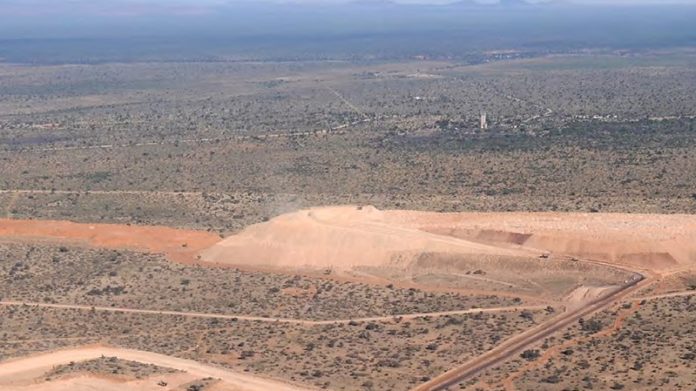
THE consolidation of South Africa’s manganese industry “still made sense”, said Justin Pitt, MD of Safika Holdings, a black-controlled shareholder in Ntsimbintle Holdings.
In 2019, Ntsimbintle Holdings planned to list its shares in Ntsimbintle Mining which owns half of the Tshipi Borwa manganese mine in South Africa’s Northern Cape province.
The listing was not progressed, but the rationale at the time was that it might benchmark manganese asset values which would, in turn, assist in the process of consolidation.
Pitt said in an interview that while his company continued to assess a listing on an annual basis, consolidation could happen in any case. “There are a lot of players in the industry, and the rationale we had at the time of the proposed listing, which made a lot of sense, still makes sense.
“Whether that [consolidation] happens, I don’t know, but it does make sense.”
Pitt was commenting shortly after Ntsimbintle Holdings confirmed it was the buyer of a 13.8% stake in Jupiter Mines, the Australian-listed manganese and iron ore business, for about A$84m (R935m). Ntsimbintle Holdings now held 19.9% in Jupiter Mines.
Pitt said the company made an unsolicited offer for a block of shares in Jupiter owned by the Dutch pension fund ABP which, through its asset management company, APG, had been reluctant to vote for the proposed demerger of Jupiter Mines’ iron ore assets into a new company, to be called Juno Mines.
ABP argued it was not mandated to have shares in the demerged company as it would be too illiquid and small. Therefore, it sought an exit strategy from Jupiter which Ntsimbintle Holdings was only too happy to scoop up.
All in all, Ntsimbintle Holdings has acquired R1.3bn worth of Jupiter Mines shares’ in the past 12 months with the 6.1% balance of its 19.9% stake acquired in the open market, said Pitt. The upshot is that Ntsimbntle’s effective interest in the underlying Tshipi mine has increased from 37% to 47%.
Tshipi is a largely unheralded South African mining success story. It produced 3.4 million tons (Mt) of manganese ore last year against a 3.1Mt budget and is currently working through a feasibility study to take production to 4.5Mt annually. Exports had been somewhat interrupted by Covid-19 impacts on Transnet, the state-owned transport and logistics company, but the company remains South Africa’s largest exporter of manganese.
A $1.9 trillion stimulus package signed by US president Joe Biden would continue to lift steel demand. “That’s two to three times the size of the package China put out following Global Economic Crisis in 2008,” said Pitt. “There could be significant value in manganese that goes into that steel.” Manganese imparts hardening qualities in the manufacture of steel. It is also supplying electric vehicle batteries.
Said Pitt of South African manganese industry consolidation: “We are consolidating our own business in this transaction [with Jupiter Mines]. This is the first step in this process”.
Asked if it made sense to bid for the shares in Tshipi that Jupiter owned, Pitt said: “While it’s not happening in the immediate future, there is logical sense in putting the two halves together”.










